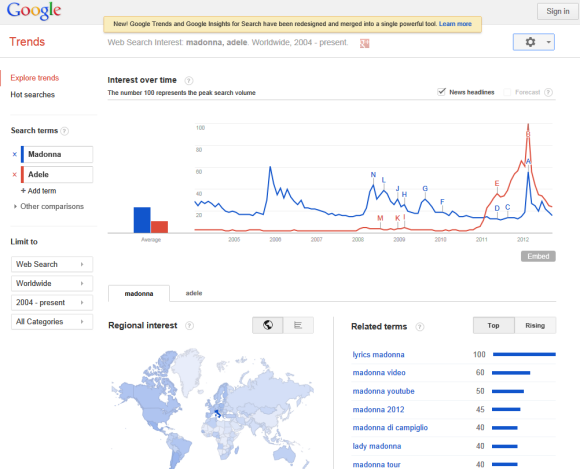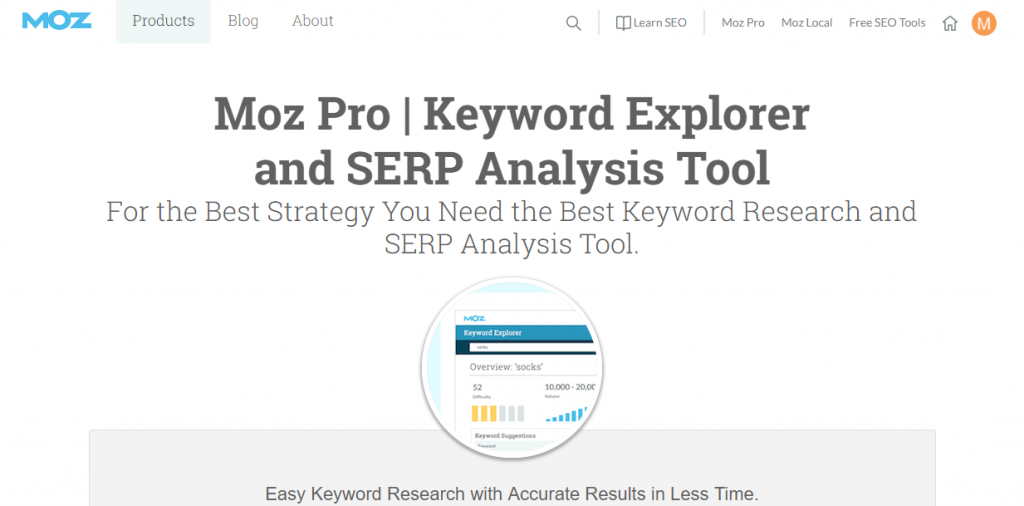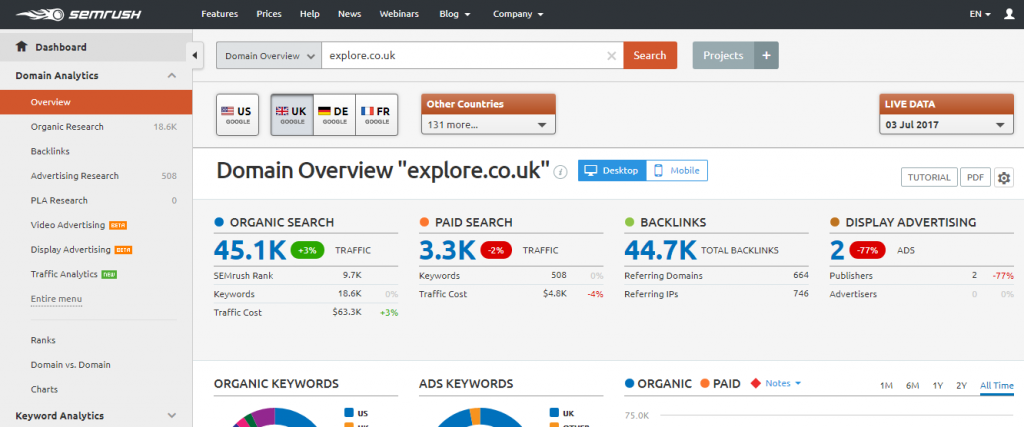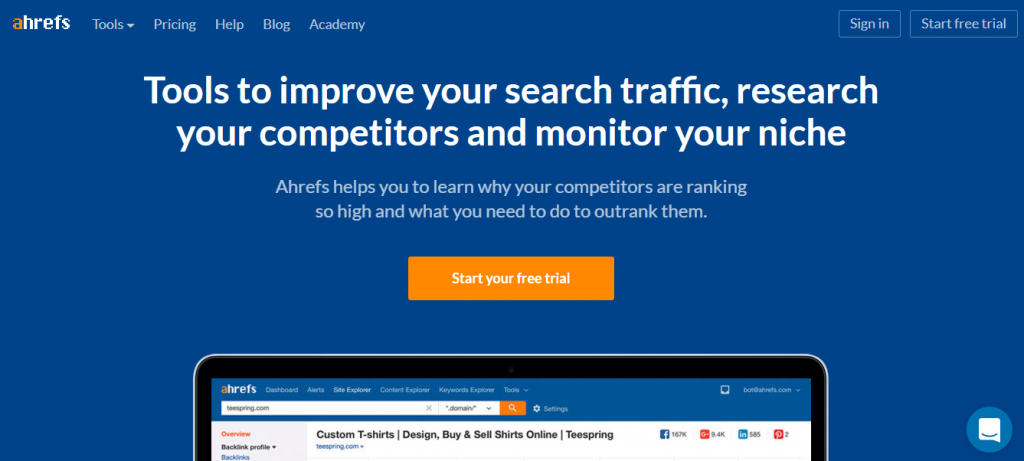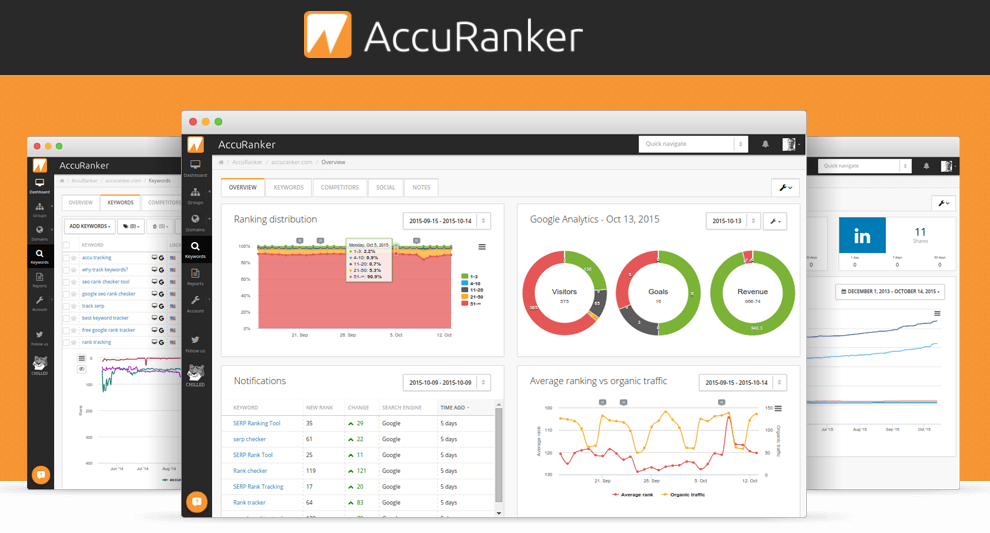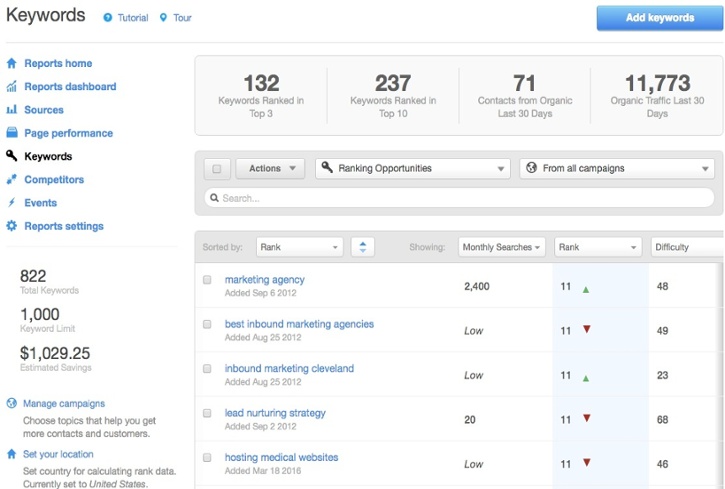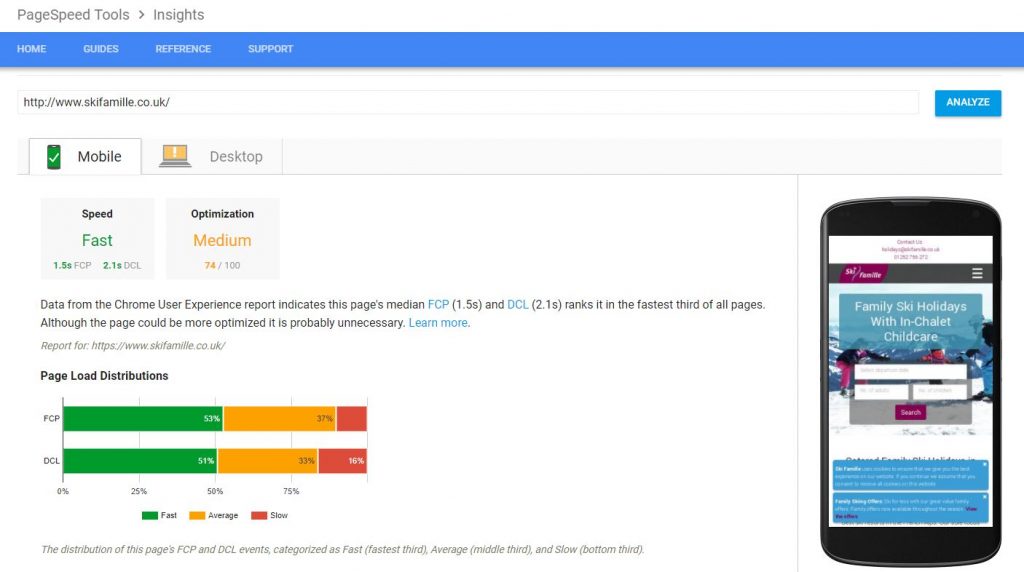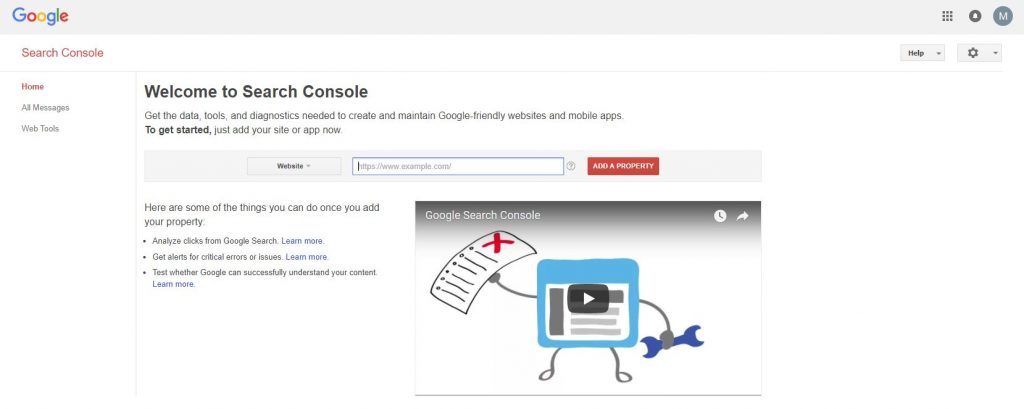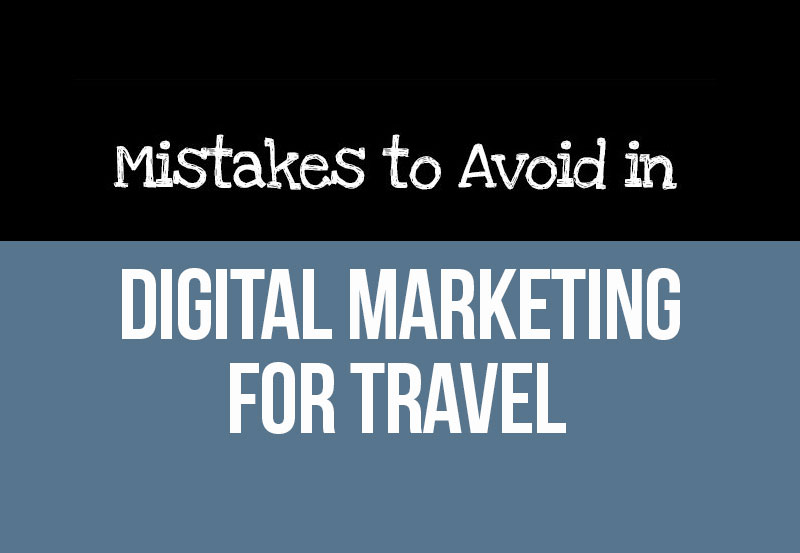The Best SEO Tools for 2021
Today’s digital marketing is governed by a ruler with two faces.
One of infinite prospects for business growth, and another resembling an ocean of competition which threatens any and all businesses.
And the name of this unpredictable tyrant?
Google of course!
Whilst the internet offers a vast horizon of opportunities for businesses of all industries, especially travel, to reach more customers than ever before; the fact that is so open and accessible poses a challenge.
How can any business succeed in standing out in this competitive landscape, where almost anyone has at least a professional website?
That’s where SEO comes in.
Search Engine Optimization is a series of practices that help a business to improve their position within the results pages of the search engines (such as Google) and take a bigger share of the potential traffic which is available within the relevant market niche.
Whether you manage SEO yourself, have an in-house team, or employ an agency to manage on your behalf, understanding the importance of SEO to your business, and how the actions you take affect your website’s rank, is essential for any business owner or marketing head.
That’s why SEO tools are so important. They allow you access to the data. To identify, understand and rectify any issues.
But where do you start?
Keyword Research Tools
Identifying the most relevant and valuable keywords for your business is the first thing you need to do in order to achieve strong SEO results.
This translates into a thorough keyword research process and identification of any related keywords with significant traffic volumes.
That is, find the keywords users are searching for which best relate to your product or service; and which have a decent number of searches per-month.
Where do you start to do that? Using some SEO tools.
These tools offer what most professional SEO marketers use everyday. Below are a selection of our favourites…
FREE Keyword Research Tools
Google Keyword Planner
Google hosts an arsenal of tools that can help you with your keyword research.
Google’s Keyword Planner, maintained inside the AdWords platform, is probably the best place to begin; particularly if you already have experience in using AdWords.
If you haven’t used it before, its structure will be relatively easy to grasp for first-timers.
All you need to do is set up an AdWords account (with some level of spend) using a Google account, and the tool is then free to use.
So it’s paid-for, but not officially.
Enter a keyword in the search field (single or multiple), or even your website address and Google will present you a long list of relevant keywords, as well as basic information that will help you to identify the level of competition for each keyword.

For every keyword you select, the tool will identify the total number of searches Google has counted within a standard month, both worldwide and locally (your national market); as well as the level of competition for the specific keyword.
Google Trends
Google Trends (trends.google.com) is yet another amazing – and free – Google tool.
The search starts by inserting the target keywords you wish to research and then select and specific parameters regarding location, search history, search volume, search volume change and category.
Google Trends will provide you with insights that describe the volume of interest a certain keyword attracts on the web, what triggers this volume of searches, what type of pages initiate the searches (web, images, news, videos, products, etc), as well as similar keywords, queries or topics.
KeywordTool.io
Another free and well-structured tool, KeywordTool (keywordtool.io) utilises Google Suggest, a search technology developed by Google to accelerate display of search results even when you have not finished writing your query.
The dominant feature of this tool is that it can deliver a list of long-tail keyword suggestions (more specific search queries) that in Google’s opinion are related to the target keyword you inserted for research.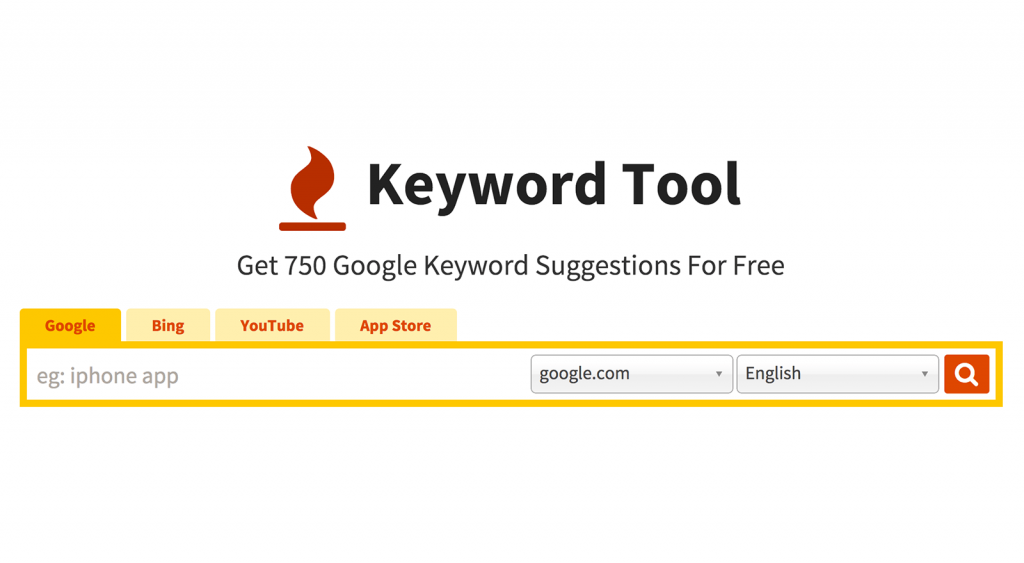 Professional (Paid) Keyword Tools
Professional (Paid) Keyword Tools
Apart from free tools, there are many task-specific, professional tools you can acquire and use for your site.
These are often part of a wider suite of packages, with pricing levels tailored to businesses of different sizes.
Moz’s Keyword Difficulty Tool
Part of the paid MozPro suite, the Moz keyword difficulty tool (moz.com/tools/keyword-difficulty) is one of the most useful, and despite the name, easy-to-use tools in the SEO game.
Among its capabilities, it helps you factor out keywords that are hard to rank for and thus saves you time and money.
It helps you to identify the biggest keyword opportunities by combining keyword difficulty score with projected search volume.
SEMrush
SEM Rush (semrush.com) is a fully-fledged analytics platform with all sorts of tools.
Worth utilising when you need to analyse the keywords your competitors use or when you want a head-to-head comparison of your domain versus another domain in terms of overall competition.
Also useful for reviewing keyword usage and ranking positions in Google’s organic, paid, and shopping search results.
Term Explorer
Term Explorer (termexplorer.com) delivers very clean and informative research reports for the keywords in scope.
It provides the highest volume of relevant keywords and most actionable competitive data available online.
Ahrefs Position Explorer
Ahrefs (ahrefs.com) provides the same framework of services as SEMrush, but it goes a step further in the direction of social metrics.
It lets you assess the rating of a specific URL or its parent domain, investigate and get clues for the backlinks number and quality and the referring domains, including the references drafted from mainstream social networks such as Google+, Facebook, and Twitter.
Accuranker
The Accuranker tool (accuranker.com) will help you to assess the ranking of your existing keywords and provide you a long list of related keywords utilising an automatic keyword differentiator.
This is extremely useful as it saves you lots of time in monitoring the rank progression through each of your keywords.
HubSpot’s Keywords Tool
Last but not least on our list is the Keywords Tool provided by Hubspot (hubspot.com).
Hubspot is mainly an in-bound marketing platform with developed branches towards CRM and sales.
The keywords tool is integrated to the marketing portion of the pie and it will greatly assist you in researching and identifying the best keywords, helping you understand exactly which keywords generate traffic and leads.
Additionally, HubSpot’s keyword tool communicates with your content pages (if they’re hosted on/linked to HubSpot).
How To Find The BEST Keywords
You need to consider:
- What is my target audience? Why will they search using this keyword?
- What is my audience is looking for now? How is this related to my keywords?
- What are other terms that I could use instead?
- How well do I rank for my target keywords?
- What are the keywords my competitors use? What is their target audience and how well do they rank with these keywords?
This will ensure that you end up with a set of keywords which are attainable, relevant to your specific target audience, and of value to your business.
Your Current Search Ranking
Once your target keywords have been determined, you need to assess your site’s current search ranking.
You are interested in the traffic that each keyword currently brings into your site.
You can use a range of the SEO tool to input your site and a specific keyword to get an estimation on how well your site ranks and the average search volume.
Select Winnable Topics
Keywords come to expand, differentiate and eventually identify to Google the main topic of the site.
Your keywords highlights to search engines that you have high-quality content which is focused around a specific subject matter.
Your task is to highlight that your business/website/writers are more skilled in a specific field of expertise than your competitors.
Your plan for the website will be affected by the age of your domain.
…for a new website
As a new website, your goal is to estimate how much time, effort and, ultimately, money it may take you to achieve strong ranking in search engines for relevant keywords and surpass your competitors.
This is closely related to how many competitors you have and how well-established they are on the market for particular keywords.
To assess these factors you will have to thoroughly analyse each of your competitors for a few key metrics:
- Site age
- How many links they‘ve got and from what sites (check Domain Authority)
- The traffic and traction the site has
- The time people stay on the site
- The strength of the brand
…for an established website
An established website is able to shift the keyword focus through creating new pages targeting additional keywords.
Examining the ranking progression of the new content will indicate the amount of work involved.
If you differentiate your site’s topic, you may quickly become an authority in a new field, depending upon your history and the competition.
Good practice is to catch the low-hanging fruit by identifying landing pages that already rank relatively high for specific keywords, and invest in high-quality external links to give these ranks a push.
It is essential to study and analyse thoroughly the strength of your competitors, the relevancy of the keywords they use against yours and against each other.
This process should be carried out at least for the competitor sites displayed on the first page of Google’s relevant search results.
Based on the results of the analysis, you will come to draw a strategy on how you will deal with several SEO aspects of your site to overcome any higher authority of your competitors.
Picking the Right SEO Tool
If you perform a quick search on how many tools there exist for SEO, you’ll be quite surprised at the abundance of sites, books, papers, plugins (and much more) available.
Most of the platforms provide a basic set of tools along with task-orientated functions that differ from provider to provider.
Some the features you should note include
- Ranking check depth (i.e. the number of links to count before stop ranking assessment. This can vary from 10 to 200 links)
- Rank update frequency (from once per month to once per day)
- Ability to compare keyword positions by dates
- Google Webmaster Tools integration
- Marketing plan (SEO checklist)
- Social media marketing integration
- Provide human help for fixing errors
- Provide multilingual customer support (if required)
Reviewing SEO tools with these features will help you find better opportunities to get high quality services, tools and tips.
Remember also that you’ll want time to get familiar with the platform, so do they:
- Offer a free trial (how many days?)
- Provide a demo (not just a video)
No matter what you decide, you need to give yourself time to get acquainted with the features, the capabilities, the work cycle, and the idiosyncrasies of each platform.
What are SEO Tools Used for?
It’s great finding a useful SEO tool, but what’s your objective?
-
Find Broken Links
Use a spider to crawl a website and detect broken links (404s) and server misconfiguration errors such as redirect loops.
Save the crawl results to fix them one by one or to forward them to a developer.
-
Analyse Page Titles & Meta Data
Identify page titles and meta descriptions during a crawl that are too long, too short, missing, or repeat across several locations on your site.
-
Extract Data
Gather any data from the HTML of a web page using CSS Path, XPath or regex.
You may be focusing on social meta tags, secondary headings, prices, SKUs or more. Use filters to keep data manageable and contained.
-
Generate Sitemaps
Generate your XML sitemap along with specific categories sitemaps, such as products, reviews, comments etc, with advanced configuration over URLs to include, last modified, priority and change frequency.
-
Check and Resolve Unwanted Re-directs
Find temporary and permanent redirects, identify redirect chains and loops.
-
Discover Duplicate Content
Use your SEO tools to detect pages with exactly the same contents using hash check (i.e. md5 correlation algorithm), partially duplicated fragments or elements such as page titles, descriptions or headings and find low quality content pages.
-
Review Robots & Directives
Find out URLs blocked by robots.txt, meta robots or X-Robots-Tag directives such as ‘noindex’ or ‘nofollow’, as well as canonical tags such as rel=”canonical”, and rel=“next” and rel=“prev”.
-
Integrate with Google Analytics
No SEO assessment is complete without the insights of Google Analytics.
Connect your site and tools the API and fetch user data, such as sessions or bounce rate and conversions, goals, transactions and revenue for landing pages against the crawl.
-
Use Google Search Console
Look for pages that have stopped ranking and non-indexed pages. Search Console may identify the reasons for this. This is discussed further later in this post.
Tools to Check your SEO Vital Signs
Any good webmaster or business owner needs to be aware of the response speed and the health of their site.
If you have experienced a sudden drop in organic traffic, Google may have penalised or de-indexed your site; hence you need to be aware of key metrics Google uses to rank your site.
The first step is to start monitoring the vital metrics for your site.
You can easily get lost in the abundance of data that one or many SEO tools can provide.
Therefore, you have to select and focus on the most important ones to get clues about factors you need to improve, and what may be causing you problems.
Check for Red Cards and Penalties
Identifying site-health issues is crucial to effective SEO.
Investing in content, identifying keywords, or building links could bring limited success if key SEO issues are not resolved.
PageSpeed Insights
Site speed tells how fast your site loads. If your site takes a few seconds to load, chances are that most people won’t wait around for it to load.
Use Google’s PageSpeed Insights to get a rank for your website’s performance and get a breakdown of things you need to improve.
Google Search Console
Google Search Console is ideal for an on-site optimisation audit.
Search Console can help you locate page index errors, re-submit a page for indexing, rectify sitemap errors as well as check the existence of the robots.txt file and create where necessary.
If you have had any manual penalties from Google (which would be severely affecting your websites rank in SERPs), this is where you will be able to learn more about the reason for the penalty.
In order to use the Google Search Console, you will have to verify your website(s).
Verifying your site in Google’s Search Console proves that you either own the site or are an authorised user.
To prove the ownership of the site you will be asked to do one of the following:
-
Add and html tag inside a web-page
Perfect for static sites where you can open, edit and close a single html page.
Difficult for dynamic content, especially if a cache mechanism is used.
-
Upload an HTML file
You must have access to your root directory. This solves the problem of dynamic content posed from modern CMS systems and cache mechanisms.
Verify via domain name provider
This requires the (virtual) handshake of your domain provider directly with Google.
It is the best option for large websites as it proves that you are the owner of the main domain and all of the resident sub-domains associated with it.
-
Add the Google Analytics code
This code is added to the template of every page on your site to help track important metrics.
Use Tag Manager to add the appropriate tag needed for verification.
In Summary
SEO is an on-going process, requiring an understanding of how both on and off-site elements affect your website’s ability to rank.
Ensuring that pages are correctly optimised for your target keywords is the first step towards strong rankings in SERPs, and the range of tools identified can help you to ensure that you are focusing on the most relevant and valuable keywords for your business.
Reviewing keyword opportunities and the link profile of your website (and your competitors) represents actions which are essential for any successful SEO campaign.
Other tools enable you to check your site’s vital signs to confirm you’ve done everything possible to give your site a good chance of ranking.
Choosing the right tools can save you a lot of time and can make the difference to your website’s rank potential.
Choose wisely.
By continuing to use the site, you agree to the use of cookies. more information
The cookie settings on this website are set to "allow cookies" to give you the best browsing experience possible. If you continue to use this website without changing your cookie settings or you click "Accept" below then you are consenting to this.

